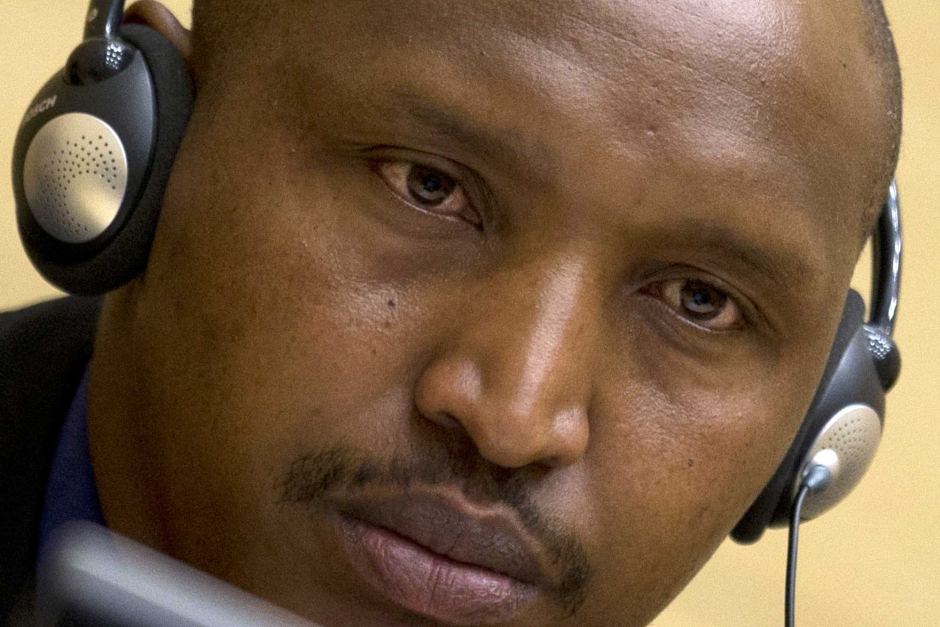SUMMARY from BOSCO NTAGANDAat the INTERNATIONAL CRIMINAL COURT
by Wairagala Wakabi
February 7, 2017
A former United Nations (UN) investigator in the Democratic Republic of Congo has recalled how rival sides to an ethnic conflict in that country engaged in killings and pillaging during 2002 and 2003.
“Civilians were killed by both sides. Pillaging was carried out by pretty much everybody – combats and also the population which took advantage of the situation,” said Sonia Bakar, who lead the investigations unit of the human rights section of the former UN Mission in Congo (MONUC).
Testifying at the International Criminal Court (ICC) trial of former rebel leader Bosco Ntaganda, Bakar said that up to 250 individuals were killed in various attacks by the accused’s troops on Mongbwalu and Bunia in Ituri district. Her investigations also found evidence implicating Ntaganda’s Union of Congolese Patriots (UPC) fighters in at least 18 cases of rape during the attacks that took place between November 2002 and March 2003.
The attacks were made against towns mostly inhabited by members of the Lendu ethnicity, she said. “The UPC shelled Lendu villages without distinction for armed combatants and civilians. They conducted manhunts for Lendu and others considered opponents. They also conducted large-scale rape, sometimes abusing girls as young as 12,” added the witness.
Bakar, who interviewed several victims and witness of the crimes, said some of them stated that, in Mongbwalu and Bunia towns, Ntaganda directly commanded some of the operations in which civilians were brutalized. However, she said Lendu combatants and their Ugandan allies, the Uganda People’s Defense Forces (UPDF), were responsible for some of the crimes.
Bakar, who completed her testimony on February 7, was mostly cross-examined by the defense about the alleged attacks in closed session. According to her team’s investigation reports, which prosecutors tendered into evidence, there were widespread reports of crimes including massacres, rape, abduction, pillaging, and destruction in Ituri district, many of which were attributed to UPC troops.
Meanwhile, the 69th individual called to testify against Ntaganda took the stand Tuesday afternoon. In an oral ruling yesterday, judges granted Witness P857 protective measures, including the use of a pseudonym and image and voice distortion during public broadcasts of his testimony, despite criticizing the basis of the prosecution’s claim that the witness faced security risks.
Judges said the prosecution provided no “objective foundation” for alleging that the witnesses faced reprisals if he testified in public. They said the only document provided by the prosecution to support its request for protective measures was based “solely” on the witness’s own assessment.
Nonetheless, judges said they were satisfied that a risk warranting protective measures, based on an assessment by the court’s Victims and Witnesses Section (VWS) relating to Witness P857’s location and the potential of heightened risk if his identity were known to the public.
According to the prosecution’s application for protective measures, Witness P857 is a Lendu civilian who witnessed UPC’s attacks on Kobu and Bambu towns and would testify about fatalities during the attacks.
Lawyers representing Ntaganda opposed the prosecution request for protective measures, arguing that Witness P857 did not initially express any fears and only requested for protective measures after prosecutors informed him of them.
Ntaganda is on trial over crimes committed by himself and his UPC fighters, who were predominantly of Hema ethnicity. Prosecutors say Ntaganda and the UPC targeted rival ethnic communities, notably the Lendu. Prosecutors also allege that the UPC under Ntaganda’s command used rape to persecute and terrorize civilians during the hostilities. The accused allegedly personally shot dead a priest in Mongbwalu. Ntaganda has denied all charges against him, arguing that he fought for a return of peace and resettlement of refugees.
Witness P857 continues giving evidence tomorrow morning.Source: International Justice Monitor by Wairagala Wakabi.
